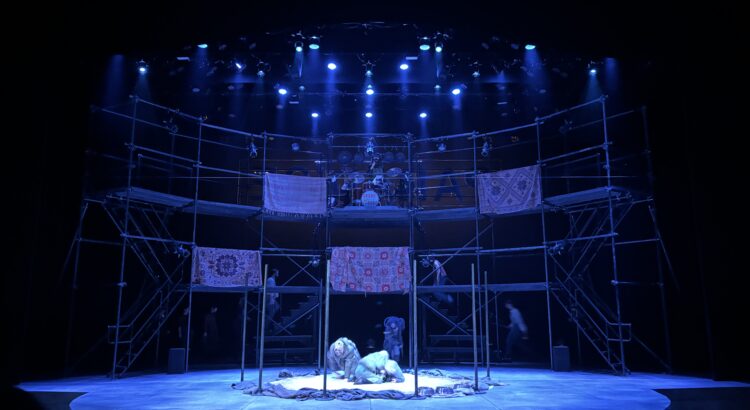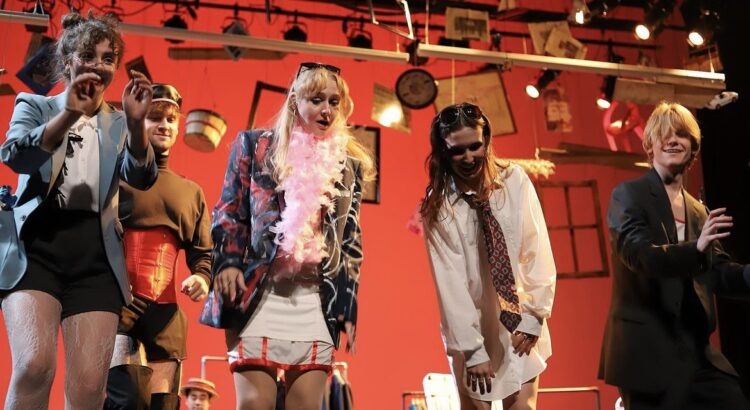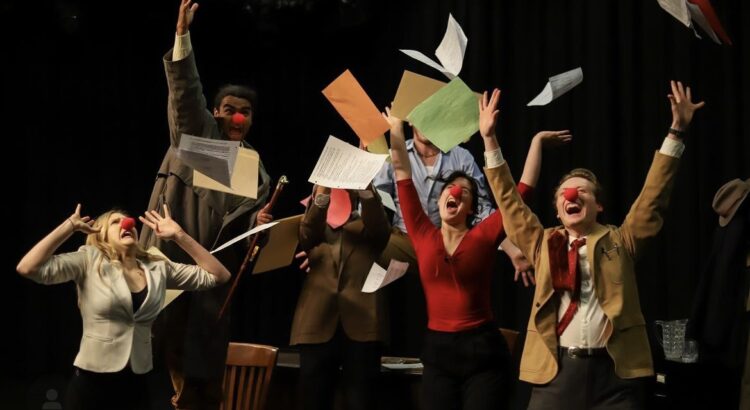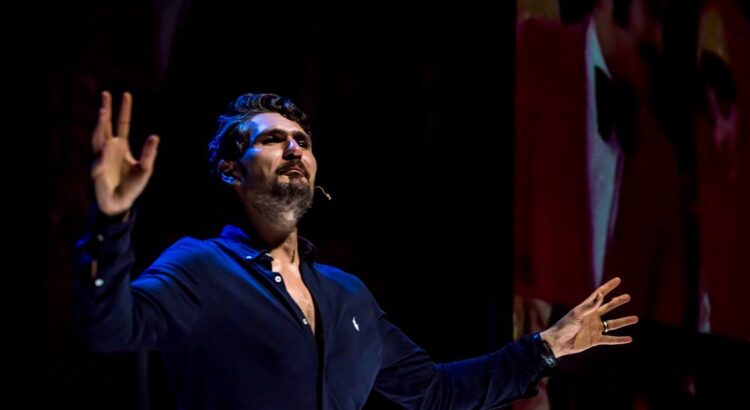On Sunday Afternoon, I went to the matinee showing of Natasha, Pierre & The Great Comet of 1812. The show was produced by In The Round, an inclusive student theater group on campus. It was in the Arthur Miller Theater, a relatively small venue, but the closeness of the space made all the wonderful performances of the night feel much more personal. Seats were right up against the stage, with some audience members sitting on the edge of the stage itself. Most of the big performances of the night happened in the middle of the room, including the opening number which involved every member of the cast singing and dancing in unison. The actors would sometimes sing directly out into the audience, which made it all the more captivating and engaging. I’ve never seen theater so up close!
The show itself is a self described long and complicated Russian novel, with a laundry list of characters. In The Round provided virtual programs, including a chart (with pictures) of every character in the show and how they’re related. Natasha and Pierre are the two main characters of the play. Natasha is young, in love, and devoted to her fiancé. Pierre, on the other hand, has resigned himself to devoting his life to his studies. A main theme of the play is love, and making the right choices when you’re in the thick of it. Even though the play is based on War and Peace, which was written almost 150 years ago, the things the characters struggle with are similar to a lot of the things young people struggle with today. Falling in love and preserving it, knowing when someone loves you in earnest, and reconciling with people you’ve wronged are all things universal to the human experience, but I found myself relating to the characters way more than I thought I would. Great Comet does a wonderful job of describing these feelings in a way that feels new.
Overall, I’m so glad I went to see Natasha, Pierre & The Great Comet of 1812. The performances of the cast is what stands out to me as one of the most compelling aspects of the show. But the performance by the pit orchestra, the songs sung by the actors, and the inclusion of electronic music in the score, made Great Comet a fun and worthwhile watch, and a great way to spend a Sunday afternoon.










